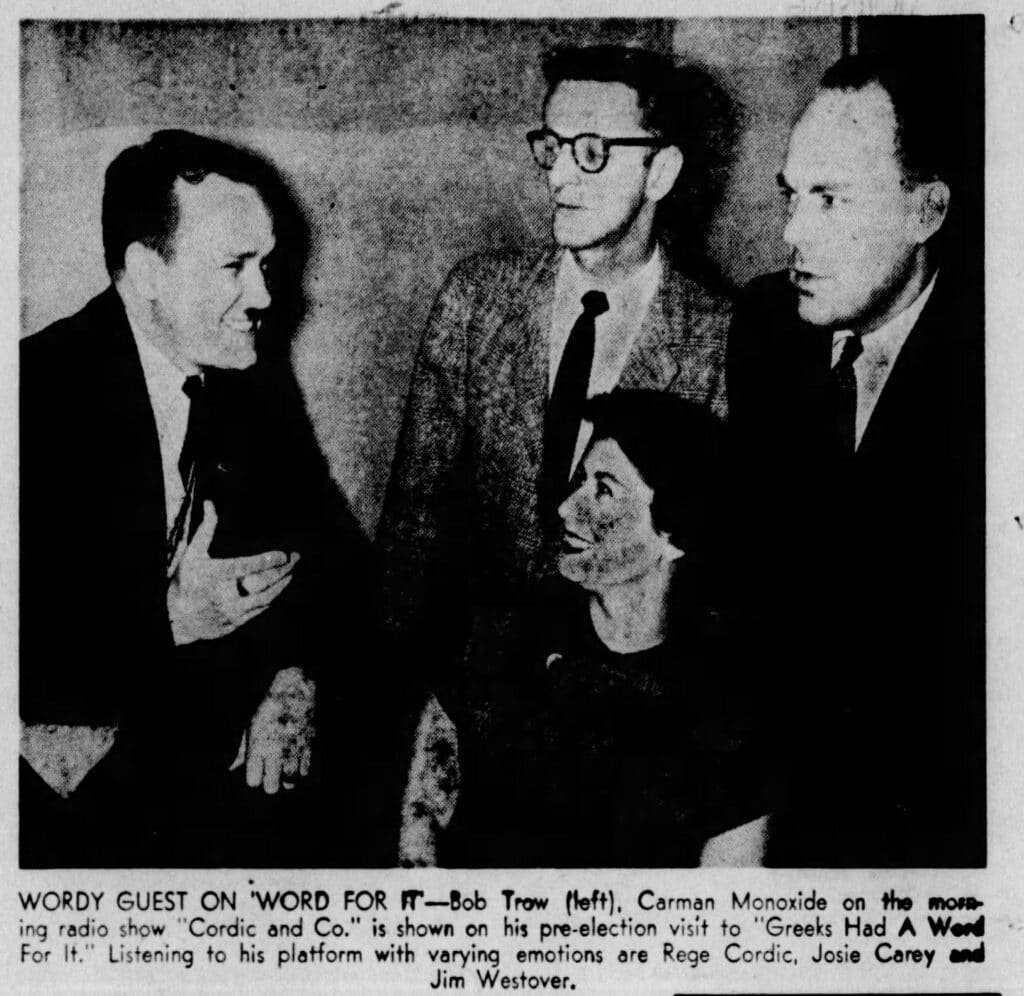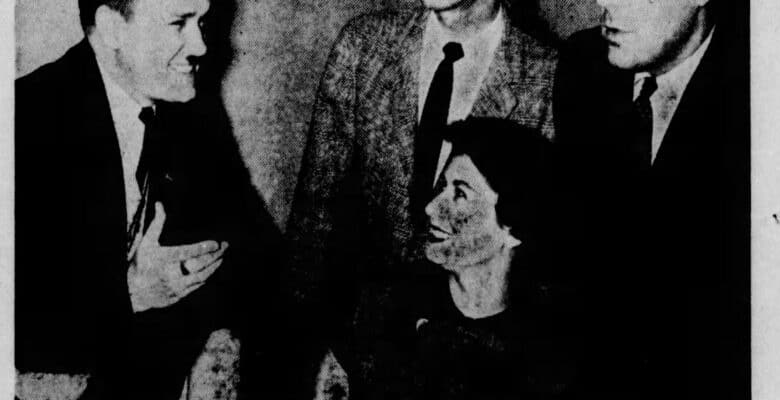By Adam Nedeff, researcher for the National Archives of Game Show History
More than two decades after the final episode of Mister Rogers’ Neighborhood aired in 2001, the legacy of Fred Rogers has endured. Rogers has been the topic of a major feature film, It’s a Beautiful Day in the Neighborhood starring Tom Hanks, and a documentary film, Won’t You Be My Neighbor. His namesake company, Fred Rogers Productions, has produced numerous public television series, including the spinoff Daniel Tiger’s Neighborhood. Rogers himself left behind an extraordinary body of work—nearly 1,000 episodes of Mister Rogers’ Neighborhood, hundreds of songwriting credits, more than a dozen operas written especially for children, something north of 40 books…and one game show. Mister Rogers created a game show.

In the early 1950s, Rogers, having just graduated from Rollins College with a Bachelor of Music degree, moved to New York to become a page at NBC. He worked his way up to a floor manager position, and he held the distinction of being the floor manager for some early closed-circuit broadcasts testing NBC’s new color programming equipment—which amused him because his co-workers didn’t realize he was color-blind. Many at NBC expected him to have a long and successful career as a director of variety shows, but before that came to pass, he surprised the network by giving his notice and moving to Pittsburgh for a new job at a local TV station that wasn’t on the air yet; one that would operate with a business model that nobody had tried before. Station WQED would air no commercials, depending on funding directly from viewers to finance the programming—public television.
Necessity being the mother of invention, WQED needed ideas for programming from any employees who had them. Dorothy Daniel, the station manager, had given broad assignments to several employees that amounted to “Come up with a game show, come up with some children’s shows, etc.” Fred Rogers rounded up a batch of brochures with ideas for party games, looking for something to spark an idea.
Rogers, and three other employees—Josie Carey, John Ziegler, and Jimmy Miller—eventually crafted an idea that they named The Greeks Had a Word for It, and they began play-testing it in the WQED office. While developing the game show, Rogers and Carey began chatting with each other about ideas for children’s shows. They found that their individual ideas were so aligned that they decided to collaborate on a series that would involve songs and puppets. They called it The Children’s Corner, and it was the show that introduced children to King Friday, Daniel Tiger (named for Dorothy Daniel), Lady Elaine Fairchild, and the Neighborhood Trolley. One of the most celebrated children’s programs in the history of television owes its existence to two co-workers chatting while they brainstormed ideas for a game show.
The Children’s Corner aired on day #1 of public television’s existence, April 5, 1954. With so little money sustaining WQED in the beginning, it took a little more than a year for The Greeks Had a Word for It to make its debut. Fittingly, Rogers’ sole venture as a game show creator was a game that required pretending and imagination.
The Greeks Had a Word For It, hosted by Jim Westover, pitted two teams against each other: The Alphas vs. The Omegas. Each team was comprised of three celebrities; generally, they were local TV and radio performers in the Pittsburgh area; among them, Bob Trow, better known to future fans of Neighborhood as Bob Dog and Robert Troll. WQED’s own employees frequently stepped up to serve as “celebrities” when necessary. Rogers himself played the game quite often.
The game was charades. Home viewers mailed in suggestions for words to be played—usually words like “versatile” or “philanthropist” that couldn’t easily be acted on their own and had to be broken down syllable-by-syllable to be conveyed. One player acted out the word while their teammates tried to guess the word for points. The team could then win bonus points by guessing the language of origin for the word. If a word “confounded” the team, the home viewer who submitted it would win a pocket dictionary and tickets to a local cultural event, like the Pittsburgh symphony or a play.
The game was easy to understand; it had an interactive element that drew in viewers; and the live, low-frills, experimental nature of WQED at the time gave it an exciting air of unpredictability. One night, a player got so worked up acting out a charade that he threw himself to the floor as part of his clue, lacerating him over the eye. But firmly believing that the show must go on, he refused medical attention and remained onstage, finishing out that evening’s episode even though he was bleeding.
The Greeks Had a Word for It was a success—it ran for more than three years in its initial run, going off the air in October 1958, only to return in the summer of 1959 with new host Bill Brant and lasting for another two years. Even with an impressive five-year tenure on the air, it was a blip in the extraordinary career of Mister Rogers.
DO YOU REMEMBER…THESE OTHER PUBLIC TELEVISION GAME SHOWS?
YOU OWE IT TO YOURSELF (1974) Allen Ludden hosted this ten-episode series, taped in Harrisburg, Pennsylvania and designed to teach viewers about money management. Another Mister Rogers connection—the theme music for this show was composed and performed by King Friday’s royal handyman, Joe Negri.
WE INTERRUPT THIS WEEK (1979) Ned Sherrin, creator of the groundbreaking satire series That was the Week That Was, hosted this comedy quiz in which journalists answered questions about recent news events.
WHERE IN THE WORLD IS CARMEN SANDIEGO? (1991-1995) Developed by National Archives of Game Show History co-founder Howard Blumenthal, and based on the computer game of the same name, three kids chased quirky crooks around the world in a geography quiz where the questions were presented in songs, cartoons, and comedy sketches.



